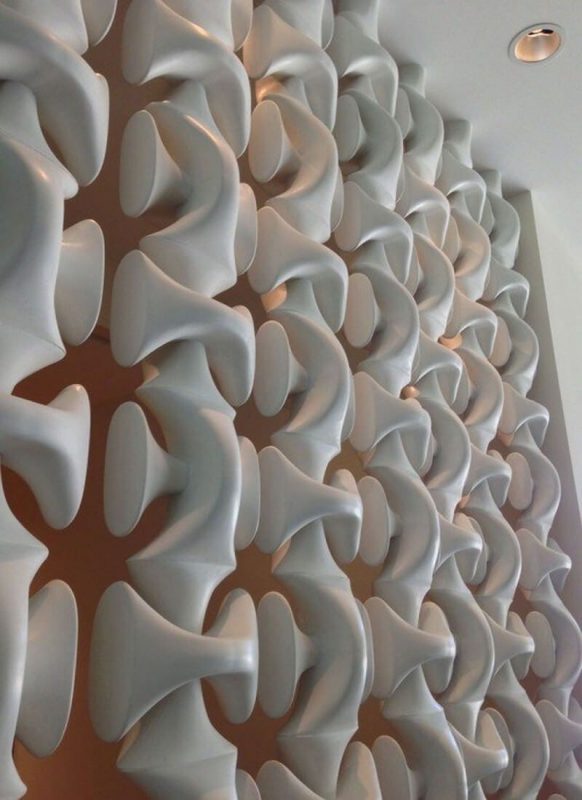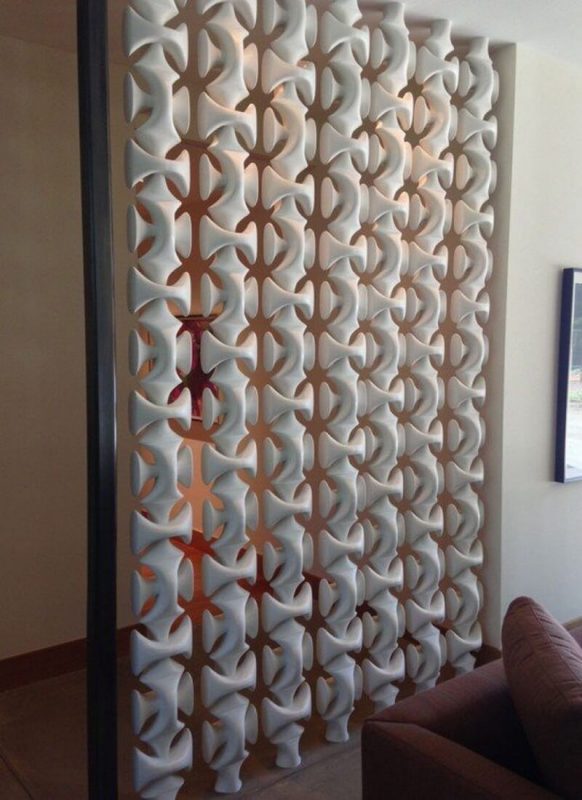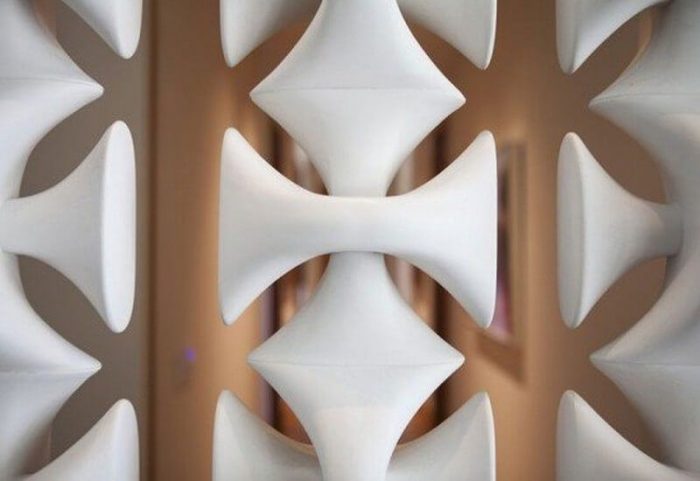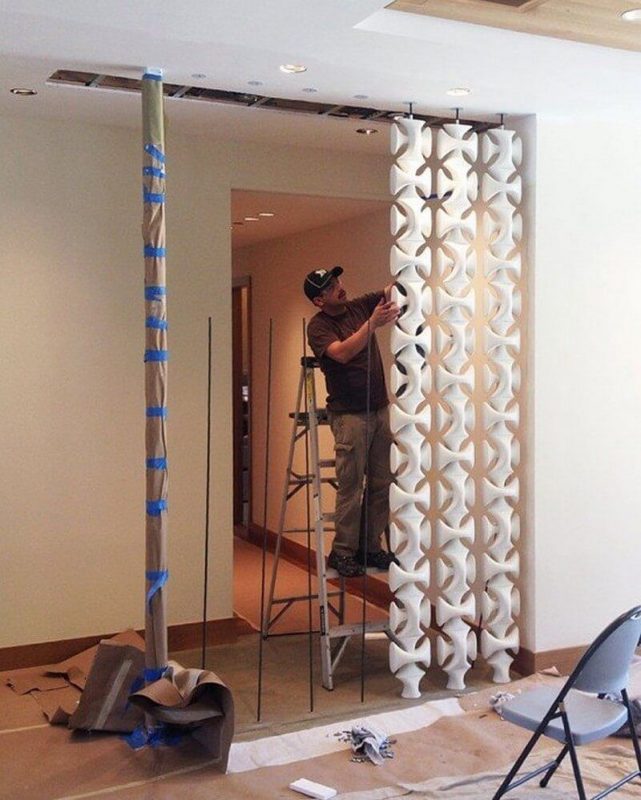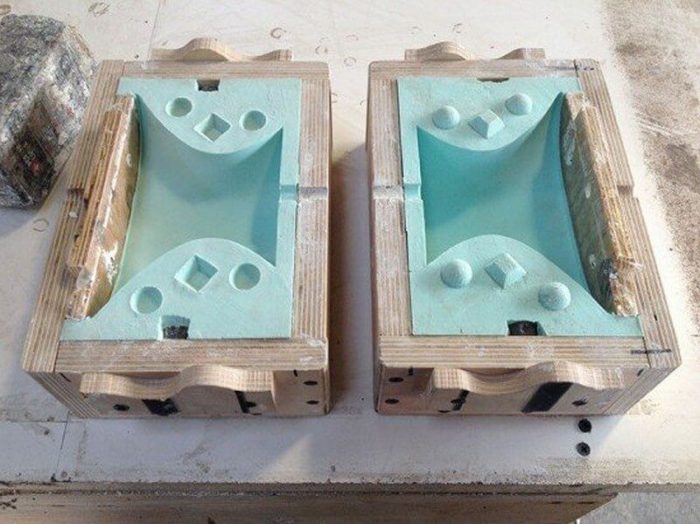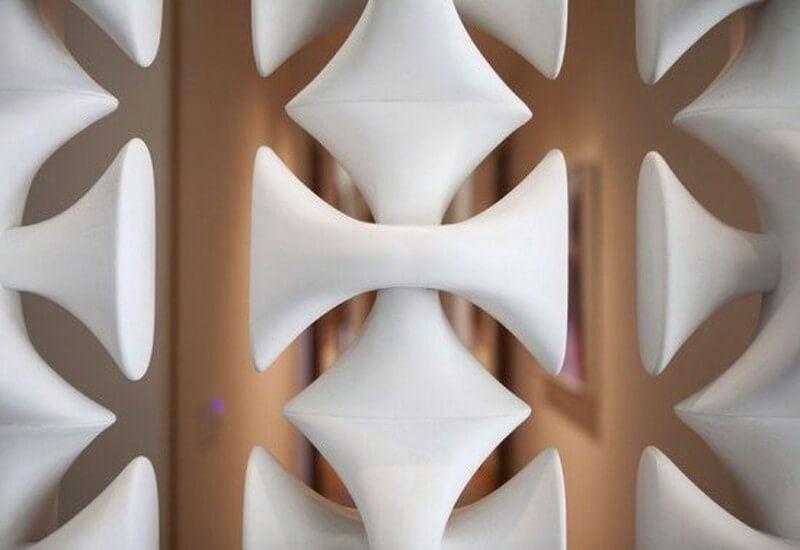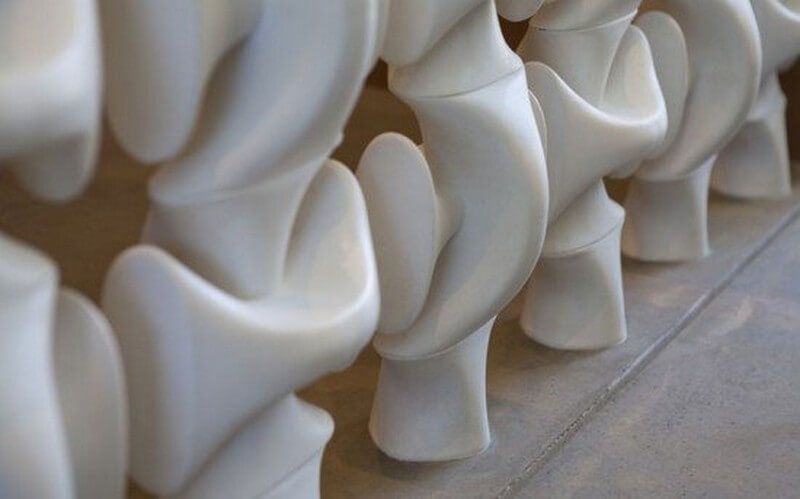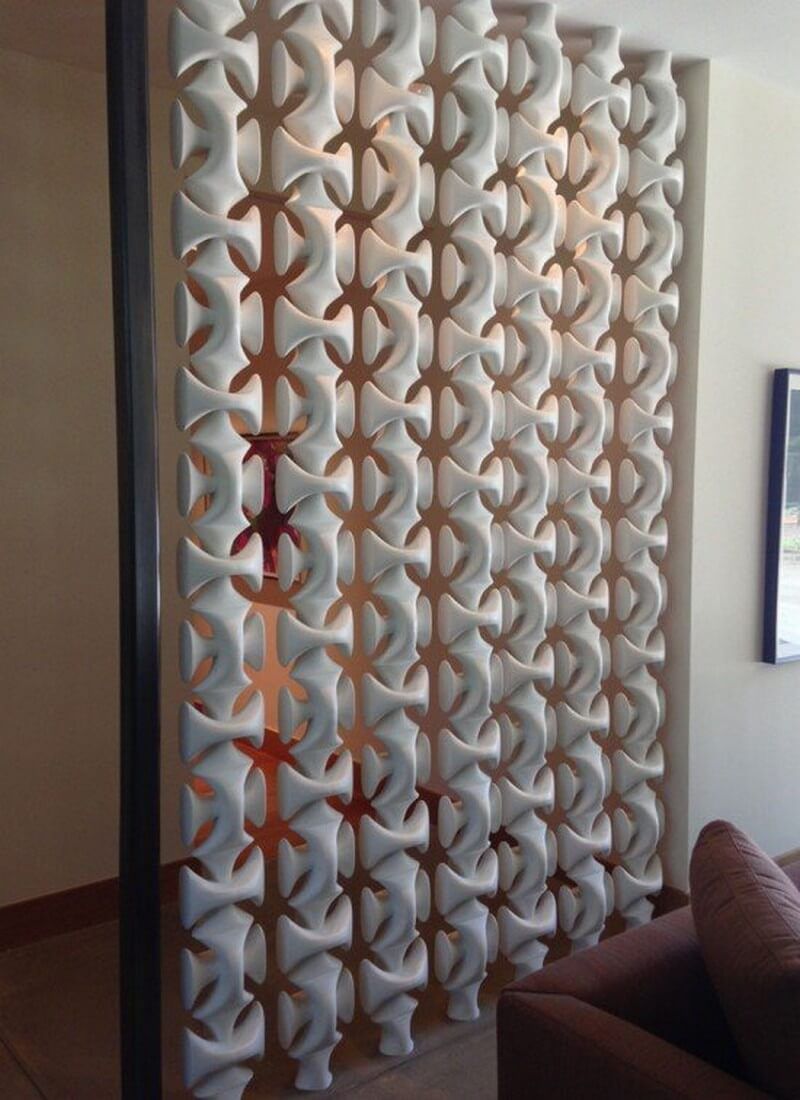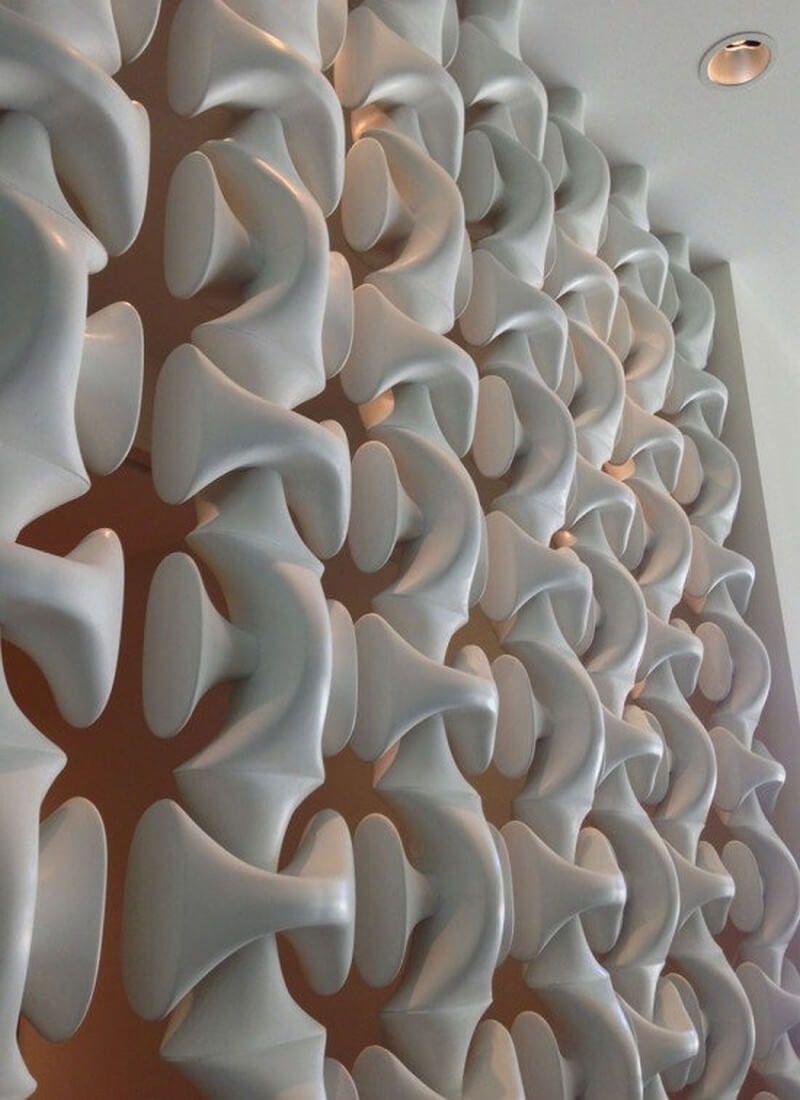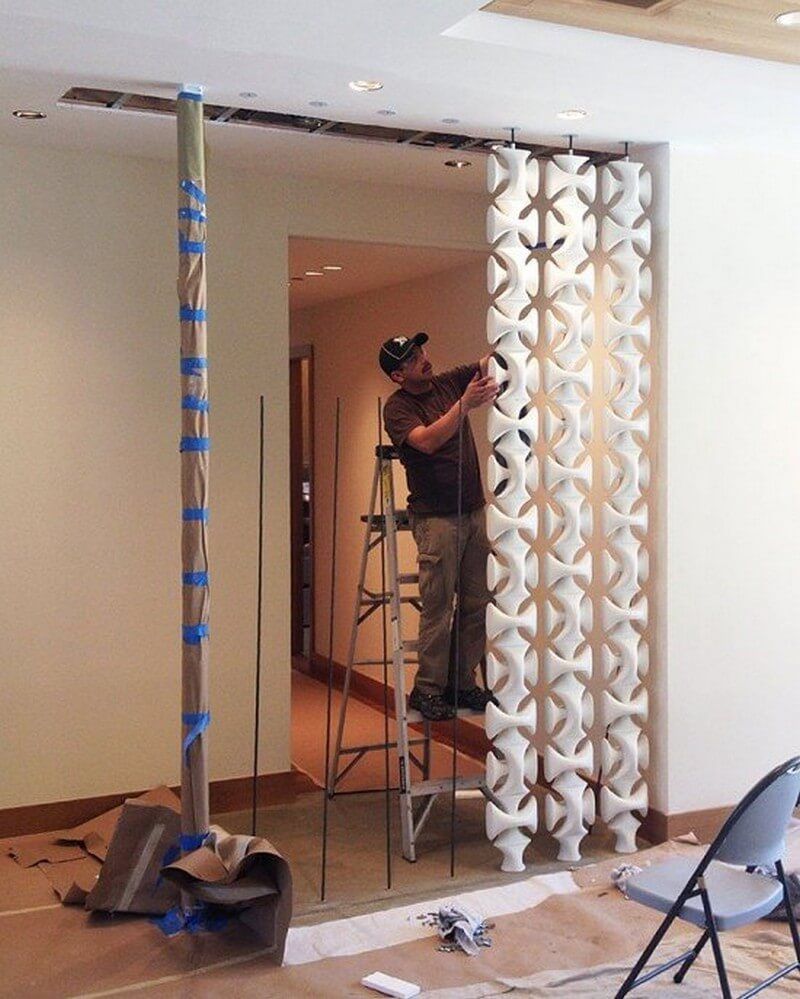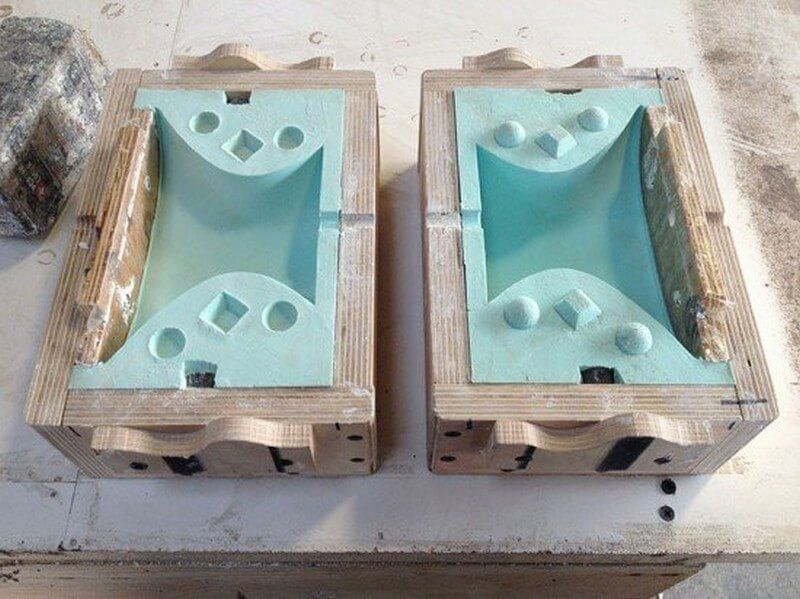Confronted with the problem of privacy in the frontier between the living space and private quarters the interior architect Michelle Wempe of Zumahoo discovered the technical capabilities of the company Concretworks and with it how to create a three-dimensional architectural panel, creating a semi-opaque divider. For this purpose the architect asked designers of the firm to draw, based in cruciform shape – a cross 2d symbol of peace in various parts of the world – the architectural panel.
 Working parametrically with Rhino and a Maya plugin, the company Concreteworks has developed a prototype inspired by the work of Erwin Hauer. The 3D shape of the resulting process is a set of two crosses woven together at a 90-degree-angle, alternating between horizontal and vertical orientations.
Working parametrically with Rhino and a Maya plugin, the company Concreteworks has developed a prototype inspired by the work of Erwin Hauer. The 3D shape of the resulting process is a set of two crosses woven together at a 90-degree-angle, alternating between horizontal and vertical orientations.
 Two crosses were printed in 3D to create silicone molds, where later a mixture of cement reinforced with fiber reinforced ultra-high performance concrete would be deposited. In the whole process there was taking into account the sensitivity of the subtle forms in particular its smooth curves. The final mixture of cement took into account that the appearance of the product should not present imperfections while offering resistance.
Two crosses were printed in 3D to create silicone molds, where later a mixture of cement reinforced with fiber reinforced ultra-high performance concrete would be deposited. In the whole process there was taking into account the sensitivity of the subtle forms in particular its smooth curves. The final mixture of cement took into account that the appearance of the product should not present imperfections while offering resistance.
 Manufacturers have taken into account that being inside a house all the pieces should be unified together; as the pieces of a necklace, all elements were united with a reinforced steel bar, to have some flexibility and still be safe.
Manufacturers have taken into account that being inside a house all the pieces should be unified together; as the pieces of a necklace, all elements were united with a reinforced steel bar, to have some flexibility and still be safe.
To achieve objects like these, 3D printing becomes a dominant element building prototypes, created parametrically or complex curves or surfaces. The company Concreteworks through its innovative design laboratory could well deliver a project of any complexity sustained on the experience in materials, but also in handling the latest technological innovations.
Courtesy of © Michelle Wempe and Concreteworks
Courtesy of © Michelle Wempe and Concreteworks
Courtesy of © Michelle Wempe and Concreteworks
Courtesy of © Michelle Wempe and Concreteworks
Courtesy of © Michelle Wempe and Concreteworks
Courtesy of © Michelle Wempe and Concreteworks


